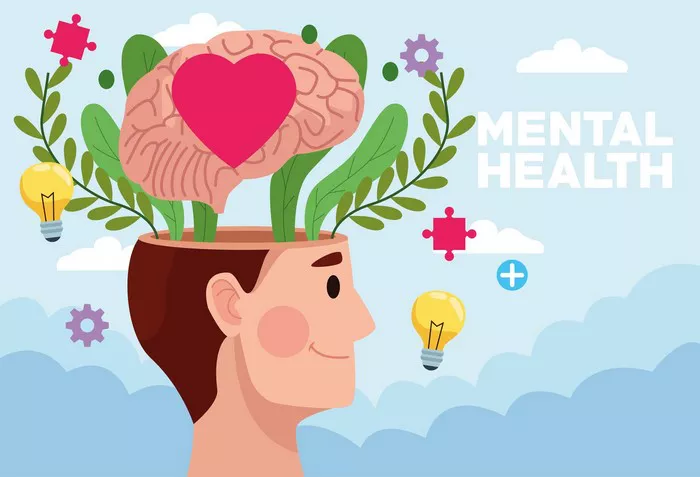Depression is a complex mental health condition that manifests in a myriad of ways, often defying common stereotypes. While sadness and withdrawal are commonly associated with depression, there are lesser-known symptoms that can be equally indicative of the disorder. One such surprising symptom is excessive laughing. In this article, we’ll delve into the intricacies of excessive laughing as a potential sign of depression, exploring its nature, potential causes, and the importance of seeking professional help.
Acknowledge the Unusual Nature of the Symptom
Excessive laughter in the context of depression can seem counterintuitive. People often associate depression with sadness and withdrawal, making laughter an unexpected symptom. However, it’s crucial to understand that depression can manifest in various ways, and excessive laughter is one such manifestation.
Define “Excessive Laughing”
In the context of depression, excessive laughing refers to laughter that is disproportionate to the situation or that occurs inappropriately. It may involve laughing uncontrollably, laughing at inappropriate times, or laughing without a clear reason.
Explain the Potential Link to Depression
Dissociation: Excessive laughter can be a form of dissociation, a coping mechanism used to escape overwhelming emotions like sadness or anxiety. In this sense, laughter serves as a defense mechanism, allowing individuals to temporarily disconnect from their distressing thoughts and feelings.
Mania: Excessive laughter can also be linked to manic episodes, which are characteristic of bipolar disorder. During manic episodes, individuals may experience heightened energy levels, euphoria, and impulsivity, leading to bouts of uncontrollable laughter.
Pseudobulbar Affect (PBA): PBA is a neurological condition characterized by uncontrollable emotional outbursts, including excessive laughter or crying. While PBA is distinct from depression, it can co-occur with depressive symptoms, exacerbating the manifestation of excessive laughter in some individuals.
Other Symptoms of Depression
In addition to excessive laughing, depression may present with a range of other symptoms, including:
Changes in sleep patterns, such as insomnia or oversleeping.
Loss of interest in activities once enjoyed, known as anhedonia.
Fatigue and decreased energy levels.
Difficulty concentrating or making decisions.
Feelings of worthlessness or excessive guilt.
Thoughts of death or suicide, or suicide attempts.
It’s important to recognize that individuals may experience depression differently, and not everyone will exhibit all of these symptoms.
Importance of Seeking Professional Help
If you or someone you know is experiencing excessive laughter or any other symptoms of depression, it’s crucial to seek professional help from a qualified mental health professional. Depression is a serious condition that can have profound effects on a person’s well-being and quality of life. A mental health professional can provide an accurate diagnosis and recommend appropriate treatment options.
Tips for Managing Depression
Managing depression often requires a multifaceted approach. Some strategies that may be helpful include:
Therapy: Talk therapy, such as cognitive-behavioral therapy (CBT) or interpersonal therapy, can help individuals understand and manage their emotions, develop coping skills, and challenge negative thought patterns.
Medication: Antidepressant medications, such as selective serotonin reuptake inhibitors (SSRIs) or serotonin-norepinephrine reuptake inhibitors (SNRIs), may be prescribed to help alleviate symptoms of depression.
Lifestyle Changes: Making positive changes to diet, sleep, and exercise can also be beneficial in managing depression. Engaging in regular physical activity, maintaining a balanced diet, and prioritizing adequate sleep can have a positive impact on mood and overall well-being.
Conclusion
In conclusion, excessive laughing can be a surprising yet significant symptom of depression. By acknowledging this symptom and understanding its potential underlying causes, we can better recognize and address depression in ourselves and others. Remember, seeking professional help is key to managing depression and promoting mental health and well-being.
FAQs
Is laughing uncontrollably a sign of depression?
Laughing uncontrollably can be a symptom of a mental health condition called pseudobulbar affect (PBA), which can occur in conditions like depression. However, it’s not a direct sign of depression itself but can be a manifestation of the emotional dysregulation that sometimes accompanies it.
What causes uncontrollable laughing?
Uncontrollable laughing can stem from neurological conditions like PBA, which disrupts emotional expression. It’s often triggered by seemingly unrelated stimuli and can be embarrassing or distressing. It’s crucial to distinguish between PBA and genuine laughter, as the former may require specific management approaches.
Does depression make you smile?
Depression can affect one’s ability to express emotions authentically, including smiling. Some individuals with depression may force smiles as a coping mechanism or to mask their inner turmoil, but these smiles often lack genuine emotion. Depression typically dampens the capacity for joy and can interfere with natural emotional responses like smiling.
Related topics:
- Understanding Mental Health: A Comprehensive Guide
- Is Hypnotherapy Good for Anxiety?
- Can Hypnosis Cure Depression?


